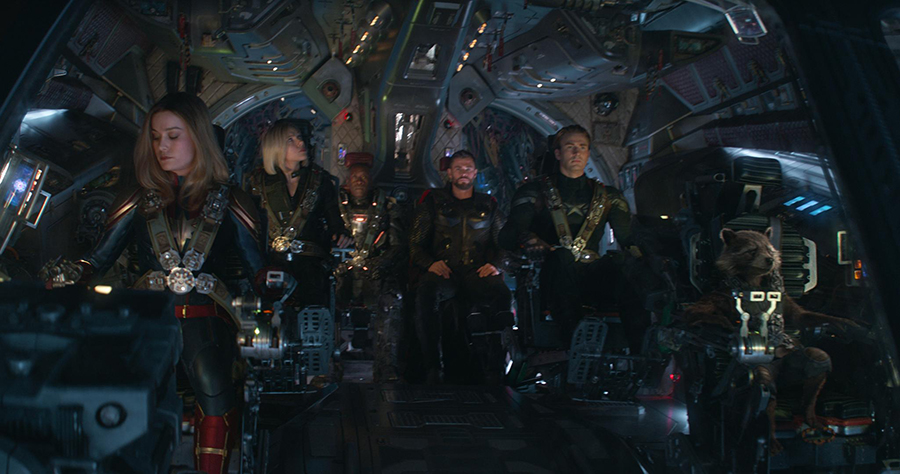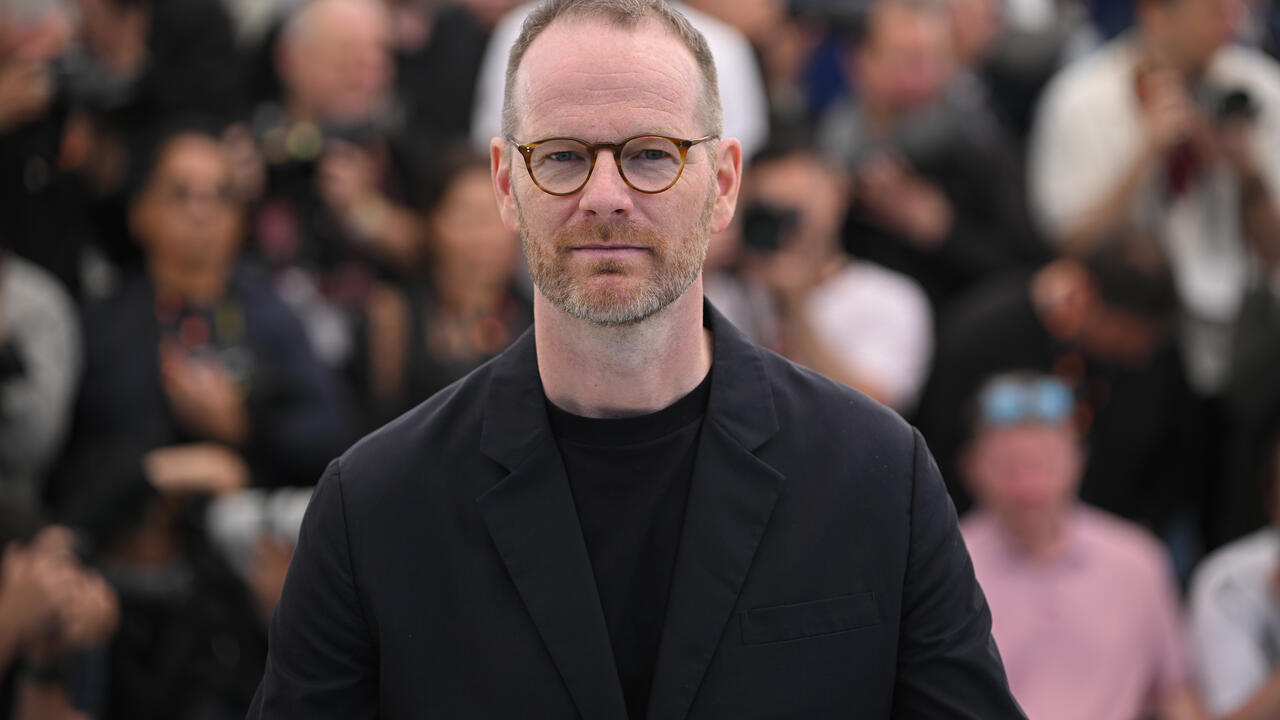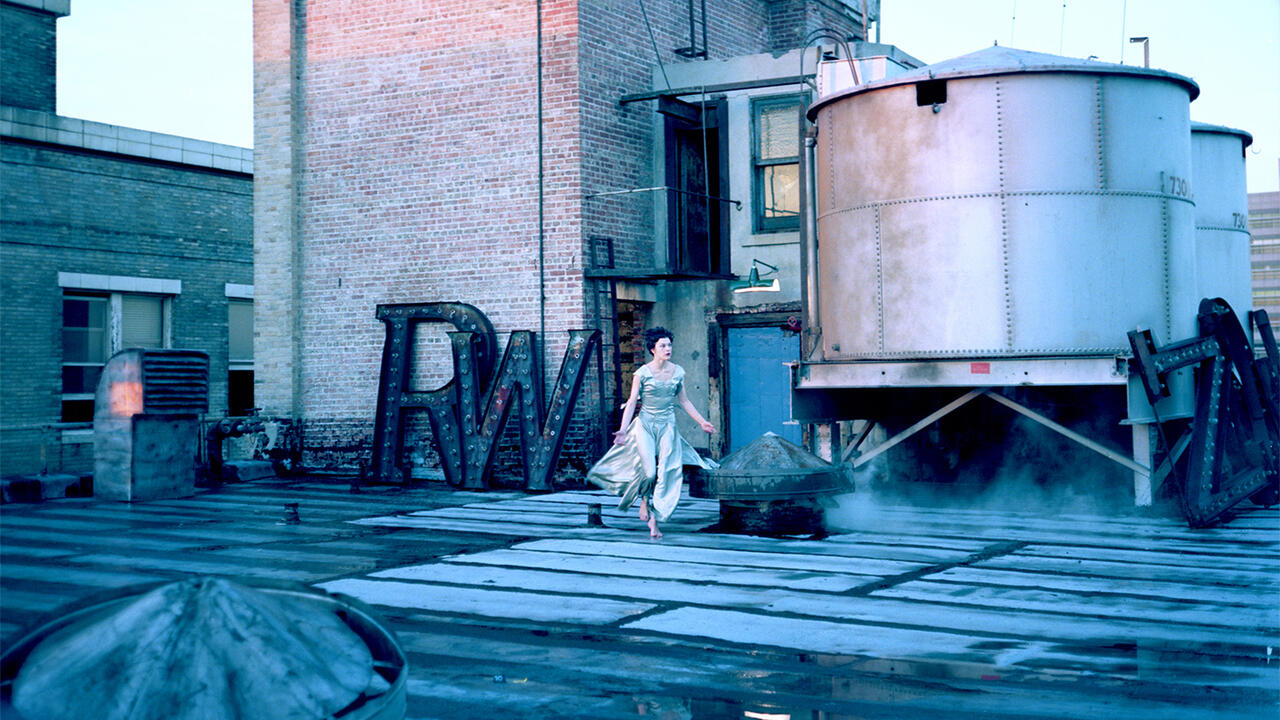Why ‘Avengers: Endgame’ Doesn’t Have to Make Sense
The infamous line ‘It is easier to imagine the end of the world than the end of capitalism’ was made for this film
The infamous line ‘It is easier to imagine the end of the world than the end of capitalism’ was made for this film

‘HAMM: We’re not beginning to... to... mean something?
CLOV: Mean something! You and I, mean something!
(Brief laugh.) Ah that's a good one!’
– Samuel Beckett, Endgame (1957)
The joyous mood of the raucous trailer for Spider-Man: Far from Home (released 2 July 2019) is recapitulated in miniature in a brief scene at the end of Avengers: Endgame (2019), which sees Peter Parker (Tom Holland) returning once again to his high school, happily greeted by his best friend, Ned (Jacob Batalon). The scene, like the very idea of Spider-Man: Far from Home existing as a film at all after Endgame, is utter nonsense: these teenagers are returning to their school as if nothing has happened, despite having lived through a pair of truly unimaginable world-historical catastrophes: the sudden disappearance of one-half of the world’s population and subsequent descent into total planetary chaos, followed five years later by the miraculous reappearance of all those missing people, at the precise ages they had been when they first disappeared.
In case you’ve forgotten, true believers, at the end of Endgame’s predecessor Avengers: Infinity War (2018) the godlike alien Thanos acquired the six Infinity Stones and used their power to eliminate half the living creatures in the universe, as part of a bizarrely ill-considered scheme to balance the ecological scales and make life in the universe sustainable. Our heroes catch up to him about ten minutes in to Endgame and quickly dispatch him, but it’s too late; he’s already destroyed the gems, making his victory permanent. Five long years pass, as a gutted Earth tries to pick up the pieces and move on – but then a fluke discovery leads to the possibility of building a time machine to rescue the Infinity Stones from the past, allowing one last chance to undo what Thanos did. And they do, mostly: the heroes win, but at great cost – the two most recognizable stars of the Marvel Cinematic Universe, Robert Downey Jr. (Iron Man) and Chris Evans (Captain America), each retire their characters and bow out of the franchise, which also loses one of its other most bankable stars in Scarlett Johansson (Black Widow). The Avengers themselves, as a brand, seems to have been retired, at least for a while, as Marvel moves into a new era of franchise production it is calling ‘Phase Four.’ And most bizarrely Thanos’s ‘Snap’ of the Infinity Gauntlet is not truly undone; the Vanished are returned to life, but the five years they missed are not erased. It all happened. It’s all still ‘canon’.

It is a shame, in a way, that the infamous line, often attributed to Fredric Jameson and Slavoj Žižek, ‘It is easier to imagine the end of the world than the end of capitalism’, has now become so overused, as it was made for a film like Endgame, which (at over three hours) cannot imagine the end of anything, least of all itself. That Peter Parker’s high school still exists at all – that the building itself has not fallen into ruin, that there is still electricity and running water, teachers and staff to run it, that the students themselves would be willing to return to school, not once but twice, after events so completely and permanently transformative of the basic coordinates of their lives – is preposterous, and that’s only the start of it. There is no way they could all just go back. And of course people do go back every day: people return to haunted spaces ravaged by car crashes, mass shootings, war, earthquakes, tornadoes, wildfires, floods, miscarriages, cancer, depression, dementia, divorce, manmade and natural disasters of every size and scale, and try to somehow resume some sense of normalcy, no matter how absolutely impossible or ludicrous it might seem to go on living after everything has changed forever.
And really: this is just one tiny moment of millions across the planet, as Snapped spouses have their first awkward meeting with the new spouse; as returners come looking for their old apartments and jobs; as people suddenly rematerialize 10,000 feet in midair, or in buildings that aren’t there anymore; as a planet that just got used to winding down its production economy to half-scale has to suddenly ramp back up to full speed again overnight. What works as an effective metaphor about loss and recovery is absolute nonsense as science fictional worldbuilding, or as cinema, or even just as a story.
More than any film yet in the Marvel Cinematic Universe (MCU), Endgame wants to mean something. It endeavours heroically to give us closure of all sorts, to give us that sense of having moved through and past grief into some new state of being, especially across a prolonged final sequence that seeks to say goodbye to the original class of Avengers. Part funeral, part marriage, part graduation, and part benediction for the next phase of Marvel films, the ending of Endgame is nonetheless structured by the transcendent impossibility of ever truly moving past loss. The time-travel mechanic invented for the film works its miracles haphazardly and arbitrarily: it can turn back time, but not the way we’d like; it can bring back the dead, but only sometimes; it can heal our pain and reverse our grief, but only partially, and only until the next movie in this never-ending franchise tears everything apart again. Endgame can undo the tragedies of Infinity War, and of itself, only to a point; the film’s most iconic sequence may not be a fight scene but a retired and broken Captain America, stoically and hypocritically trying to help the world find a way to move on, one ten-person group counseling session at a time.

That the film doesn’t seem overwhelmingly sad, despite being catastrophically so, not only on the level of the MCU’s decimated stable of actors but on the level of a society in omni-crisis that will never and can never return to ‘normal,’ is a testament to its skillful manipulation of the audience’s emotions, and its quasi-religious suspension of the ordinary logic of life, aging, and death through breathtakingly ambitious deployment of the MCU’s bottomless nostalgia for itself. Time travel in Endgame means we literally spend over an hour luxuriating in Marvel’s earlier movies, even the universally panned ones like Thor: The Dark World (2013), where we revisit characters who have been killed off (like Thor’s mom, Frigga, played by Rene Russo) or whose actors simply refuse to participate in the MCU anymore (like Thor’s girlfriend, Jane Foster, played by Natalie Portman).
The catharsis generated by the film’s impossible collision of different moments in ‘franchise time’ is incredibly effective. Indeed, the fact that the characters in this franchise are so fundamentally blank – the way they have no real personality or recognizable interiority beyond their brief appearances in an MCU movie every few years, that none of this fits together in an organically paced or traditionally coherent narrative with beginning, middle, end, and duration – perversely makes Endgame’s ability to manipulate us more effective, not less. Whatever your personal history and emotional triggers, whatever impossible conversation across time and space you wish you could have, the film’s endless recombination of nonspecific relationship LEGOs – mother, father, daughter, son, spouse, lost love, sibling, friend, frenemy, mentor – will eventually snap into a configuration that will make you weepy. Find out when someone started crying during Endgame, and you’ll find out who they’ve lost.

In this way we see that the film’s production of genuine emotional intensity in its audience is masterfully sundered from any need for internal coherence or narrative progression, either within this one movie or across this immense franchise. The hype machine has successfully prepared us for an ‘end,’ and the film is relentlessly directed towards this end; over its three hours, it presents us with extravagant climaxes and moving denouements, over and over again, almost to the point of self-parody. And yet there are half a dozen additional MCU properties already in development, including (as after Infinity War) some that star characters who died in this one (like Black Widow, in preproduction) or stay dead from the last one (like the Loki and Vision television series for Disney+), and others with heroes who will simply be moving on to their next set of wacky adventures as though this film didn’t render any further wackiness unimaginable (especially Spider-Man, but also Dr. Strange 2, Black Panther 2, Guardians of the Galaxy 3, and on and on). It truly doesn’t matter that Endgame can’t present us with any consistent story logic to run us through these paces; it doesn’t even matter that the story-world we are left with is not really one in which further stories of this sort can be told, or that they’ll find a way to tell them anyway. ‘To think perhaps it won’t all have been for nothing!’, Beckett once wrote, with his trademark bitter laugh. Spider-Man: Far from Home arrives in theatres in just over two months.
The most radical gesture of the film, its only true deviation from the MCU’s perpetual-motion cycle of feigned retreat followed by renewed expansion, is its refusal of the now-bog-standard post-credits sequence that Iron Man (2008) first pioneered. Unlike every previous MCU film, the film is self-contained; it offers no glimpse into the future of the franchise, no promise of an inevitable return. In this way Endgame does pretend to be the end, the real end, of the MCU; its only ambivalent gesture towards the future of the franchise is an ominous and unexplained clanging at the very end of the credits, a sort of staccato, metallic hammering, the sound of something being built, or being broken down, or breaking through. Or perhaps this isn’t a gesture towards the future at all – perhaps it is simply the sound of a man in a cave, slowly and methodically making himself a ridiculous metal suit, an event so absurd not even the Disney Corporation can make it happen a second time.
Main image: Anthony Russo and Joe Russo, Avengers: Endgame, 2019, film still. Courtesy: Marvel





















